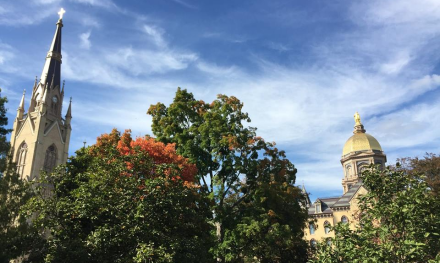In January, I spoke to a room full of Christian college presidents for the annual gathering of the Council for Christian Colleges and Universities. The topic they set for me was how to talk about a Christian theology of marriage with real compassion for students wrestling through questions of sexual identity. The CCCU has now transcribed my remarks, and you can read them here.
An excerpt:
I want to suggest to you that one of the most important things you can do on your campuses is cast a vision of what a hopeful future could look like for your students who are same-sex attracted. For so many of us, when we think about living out our lives in the evangelical church as gay—and as celibate, probably, for most of us—the future looks blank. We can’t picture what it would look like because we don’t have models of how this goes. I’ve spent all my life in the church, and I have rarely seen people in their 40s, 50s, and 60s who are talking openly about what it looks like to embrace a vocation of celibacy.
I remember recently talking to a Roman Catholic friend of mine who grew up in the church. He said, “From the time I was 4 years old, it was a huge question in my mind as to whether God might call me to be celibate”—because God might call him to be a priest. As soon as I heard him say that, I thought, “Our childhoods were so profoundly different because it never occurred to me that God might call me to be celibate. It never occurred to me to contemplate the single life.” I always simply assumed I’d go to college and meet my spouse like my parents did and live a Christian life by having kids and being part of a family values church. That was the future; that was the path. It never occurred to me that God might have in mind a vocation of celibacy. I apparently never read 1 Corinthians 7.
But this is the challenge for you, to cast a vision—and it doesn’t have to be one vision; I think there are 100 different models that this could take for your students—but to cast a vision [for your students]: “This is what a hopeful future looks like for you. If you’re same-sex attracted, and you’ve tried everything, and you haven’t experienced one iota of change in your same-sex attraction, and you’re wanting to give your life to God in celibacy, that does not have to equal loneliness. That does not have to equal isolation. … There’s a life for you. There’s a future for you that doesn’t simply look like alienation from your fellow believers in the church who seem to be so fixated on the nuclear family.” … What I am praying for you is that you will find yourself thinking of your same-sex attracted students not as a liability on your campus, but as people you’re in solidarity with.
You can read the rest here.




You must be logged in to post a comment.